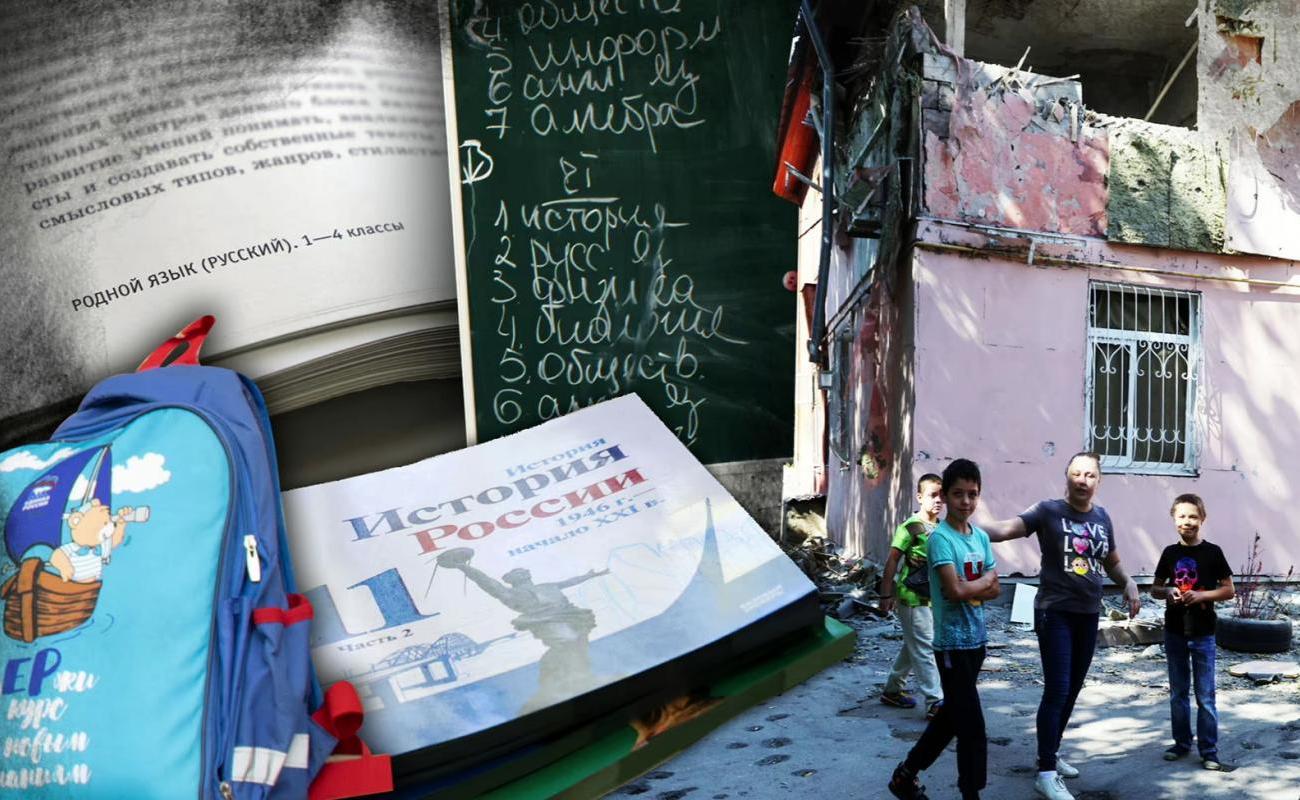Occupied education. How Russia distorts the minds of Ukrainian children in Kherson

Today, millions of Ukrainian children are starting another school year, either in Ukraine or abroad in the West. However, some remain under occupation, as more than 500 Ukrainian schools are still under Russian control.
Parents and teachers who resist the imposed education risk their own freedom and that of their students. Meanwhile, children are increasingly fearful of returning to Ukraine, labeling themselves as traitors.
How Russia is implementing its plans to enslave new generations through distorted education is explored in a study by The Reckoning Project, specially for Ukrayinska Pravda.
In October 2020, the Kherson City Court released Tetiana Kuzmich, head of the "Rusych Russian National Community", on bail of half a million hryvnias. This NGO operated in the Kherson, Mykolaiv, and Odesa regions and Kuzmich was suspected of spying for Russia.
At the same time, Kuzmich served as a senior lecturer at the Kherson Academy of Continuing Education, giving her access to the teaching staff of local schools.
The Rusych community claimed its purpose was to "preserve and disseminate among young people the traditions of the Russian people." Similar organizations in Crimea and eastern Ukraine had previously become hubs for collaborators engaged in spying and bribing local elites. In the two years leading up to the invasion, over a hundred such organizations were active in Ukraine, but Kuzmich’s case stood out as particularly significant.
"At the time, we had her in our hands, and during the pre-trial investigation, we collected more than enough evidence to find her guilty and observed all the rules. Obviously, Russia simply made a deal with its rats among us, and she was released," a law enforcement source who worked on the criminal case against Kuzmich told the authors of the material.
Tetiana Kuzmich waited for Russia’s full-scale invasion and became one of the key figures in the takeover of education in the Kherson region, assuming the role of head of the occupation department of education and science for the region. In mid-summer 2022, in Kherson, the spy Kuzmich announced that schools in the region would operate according to Russian standards and that children would receive Russian certificates.
Today, Kuzmich has risen to the position of deputy for refugees affairs under the so-called governor of the Kherson region, Volodymyr Saldo. She also claims her mission is to "restore Russianness to those Ukrainians who remain on the other side today, which she describes as an aspect of the so-called denazification of Ukraine".
Recruitment of teachers
The occupiers conducted an inventory not only of the property but also of the staff at the schools. Starting in mid-summer 2022, most of the region’s institutions held working meetings. This was possible where principals cooperated with the occupation authorities or where the Russians could easily appoint someone to the position of head of the institution.
"Our principal, Oksana Kryvenkova, sent us an invitation to the meeting via Viber. My colleague, computer science teacher Natalia Vaskovska, and I decided to attend. We suspected what was coming. Kryvenkova, speaking in Russian, said that she had been appointed by Saldo and that the school would operate offline according to the Russian curriculum," says Viktoria Kovaleva, an English teacher at Mykilskyi Lyceum.
The Russians aimed to make this school in the Darivka community of Kherson Oblast an exemplary one. This was facilitated by the then-principal and a group of local pro-Russian activists who appealed to the occupation administration to open the school.
"The expressions on our colleagues’ faces immediately revealed who was ready to cooperate. They had succumbed to propaganda," Kovaleva adds. "Natalia and I listened to all of this, took our things, and left. I haven’t been back to our school since."
According to the teachers, about ten of their colleagues at Mykilske School cooperated with the occupation administration.
